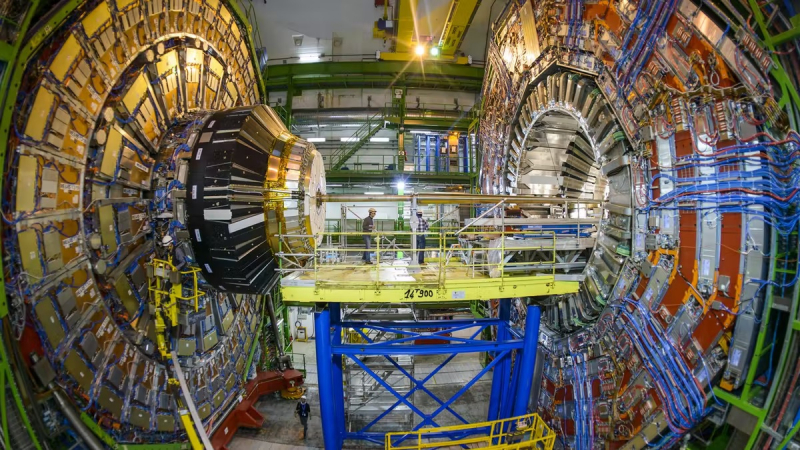Large Hadron Collider
The Large Hadron Collider (LHC) is the largest and most powerful particle collider in the world. It was constructed between 1998 and 2008 by the European Organization for Nuclear Research (CERN) in partnership with nearly 10,000 scientists, hundreds of institutions and institutes, and more than 100 nations. It is located near Geneva, in a tunnel with a radius of 27 kilometers (17 miles) and a depth of 175 meters (574 feet). The construction of the Large Hadron Collider took a decade and cost $4.75 billion. The majority of the funds came from European countries such as Germany, the United Kingdom, France, and Spain.
Many physicists hope that the Large Hadron Collider will aid in the resolution of some of physics' most fundamental open questions, such as the fundamental laws governing interactions and forces among elementary objects, the deep structure of space and time, and, in particular, the interrelationship between quantum mechanics and general relativity. Data from high-energy particle experiments are also required to determine which versions of current scientific models are more likely to be correct – specifically, to choose between the Standard Model and the Higgsless model, as well as to validate their predictions and allow for further theoretical development.
Cost: $4.75 billion










